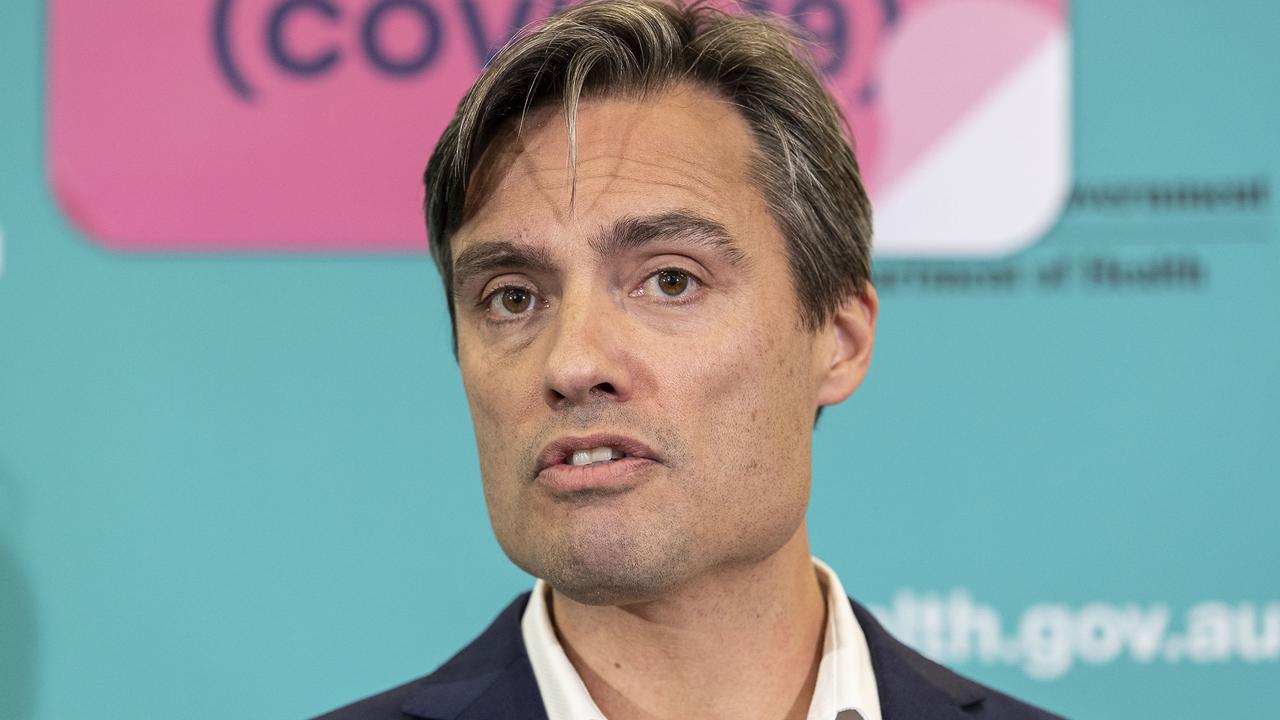Why 2022 and Omicron variant will mark the end of the Covid-19 pandemic
The end of last year may not have looked the way many Australians had hoped thanks to Omicron, but experts around the world suggest in 2022, the pandemic will finally finish.
Suffice to say, with thousands either infected with Covid-19 or in isolation, Christmas and New Year’s Eve 2021 hardly resembled the “normal” end of year leaders had promised in the dying days of Australia’s respective Delta outbreaks.
The arrival of the Omicron strain threw people’s long-awaited plans into disarray, placing immense stress on testing capabilities, forcing businesses to shutter and putting a dampener on the silly season as case numbers skyrocketed across the country.
Despite the less than optimal start to 2022, however, health experts both at home and abroad have suggested the new variant – and the next 12 months – could finally signal the end of the coronavirus pandemic’s two-year reign.
Former deputy chief medical officer Nick Coatsworth couldn’t have put it more plainly today, writing in an op-ed for The Sydney Morning Herald that “in 2022, the Covid-19 pandemic will end”.
“Driven by the inexorable, inevitable spread of the Omicron variant and the use of vaccines, the global population will generate immunity to this virus,” Dr Coatsworth wrote.

“The basic proposition of a pandemic, an infectious disease spreading globally among an infection-naive population, will be void. We will live our lives again as part of the incredibly social and incurably optimistic human species that thrives on this planet and has emerged from countless pandemics over history stronger and more capable of managing the next.”
Not ‘the same disease we were seeing a year ago’
Covid-19, he added, “is now the most treatable respiratory virus known to man”, and despite its transmissibility, Omicron will likely have a lower case-to-fatality ratio than the flu, “and not a particularly bad flu at that”.
As immunologist Sir John Bell, who was a lead scientist on the AstraZeneca vaccine, concluded earlier this week, the strain is not “the same disease we were seeing a year ago”.
“The horrific scenes that we saw a year ago – intensive care units being full, lots of people dying prematurely – that is now history in my view, and I think we should be reassured that that’s likely to continue,” the Regis Professor of Medicine at Oxford University told BBC Radio 4’s Today program on Wednesday.
The London School of Hygiene and Tropical Medicine’s Professor Martin Hibberd agreed.
“The virus will evolve itself out of the pandemic strain very soon and become milder, more transmissible to the point where you may only need to think about vaccinating the more vulnerable members of the population,” Dr Tang told The Guardian.

Positive signs out of South Africa
While cases elsewhere – including in Australia, the UK and the US – continue to be bolstered by the more contagious strain, in South Africa, where Omicron was first detected in November, experts predict it will have fizzled out within weeks.
While a rise in hospitalisations coincided with a steep jump in cases, admission rates in South Africa have so far remained far below the levels seen during previous waves of the pandemic, and, positively, patients with Omicron stayed for shorter periods and there were fewer deaths.
“We saw a very rapid rise in cases and an early peak – and the indications are that since then we’ve had a remarkable drop,” the National Institute for Communicable Diseases’ (NICD) Dr Waasila Jassat said.
The NICD’s latest report shows that cases up to December 18 have dropped nationally by 20.8 per cent in one week – and while some officials have warned it’s important “not to extrapolate what we are seeing in South Africa across the continent, or across the world”, it is a hopeful sign.
‘The end of the pandemic as a social phenomenon’
Whatever course Omicron takes elsewhere, Johns Hopkins University associate professor Yascha Mounk wrote for The Atlantic last week that it will bring about “the end of the pandemic as a social phenomenon”.
The goal, at least in the US, he wrote, is now “to help us cope with a surge of cases, not to prevent one from happening in the first place”.
“If Omicron starts to send patients to ICUs in the tens of thousands, bringing hospitals to the brink of collapse, both politicians and citizens are going to respond,” he added.
“But if the goal had once been to stop an emergency from arising, serious restrictions like shutdowns are now thinkable only if we get into a situation in which the emergency is already plain for all to see.”
Professor Mounk concluded that “whatever damage Omicron might wreak in the immediate future, we will, most likely, soon lead lives that look a lot more like they did in the spring of 2019 than in the spring of 2020”.


Here in Australia, Dr Coatsworth suggested a similar outcome.
The evolution of the virus into something less extreme “will allow us to release all but the least intrusive of restrictions”.
Young Australians, Dr Coatsworth said, will be able to return to school, travel the country and the world, and any future restrictions would “arise in only the most dire threat to our health” – a threat that “grows more and more improbable by the day”.
“In light of our community success, the evolution of the virus to a milder form and effective new treatments, the time for mandates and whole-of-community restrictions is therefore over,” he wrote in the SMH.
“We can be rightly proud of what we have achieved as Australians in the face of what was the challenge of our lifetime. We will emerge a stronger, healthier and more prosperous nation for our efforts.
“Twenty twenty-two will be the year the pandemic ends. It could even be sooner than we think.”
Originally published as Why 2022 and Omicron variant will mark the end of the Covid-19 pandemic





